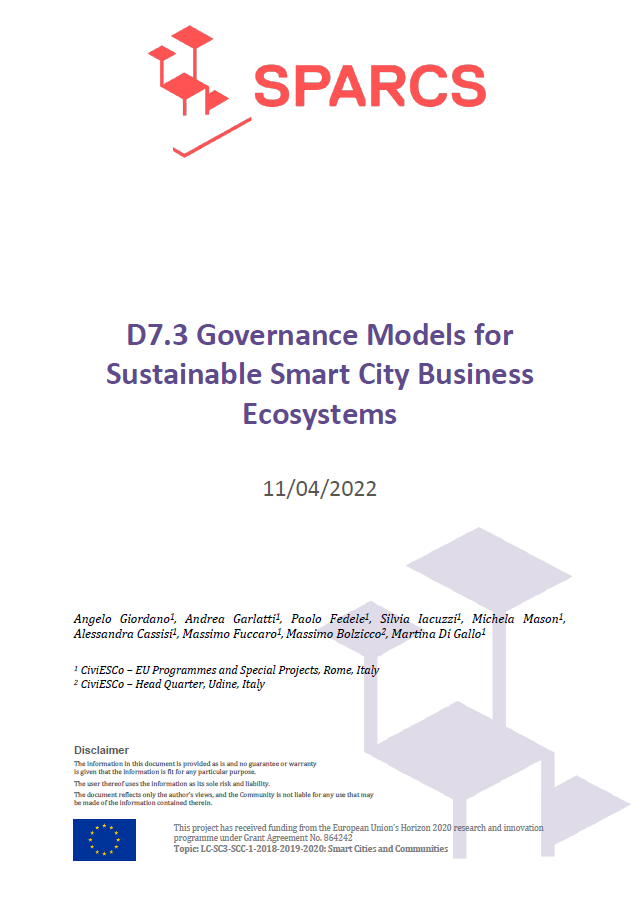D7.3 Governance Models for Sustainable Smart City Business Ecosystems
T7.3 will co-design the baseline version of the governance model aiming to create the 2050 Smart City Vision, implemented in T1.5 as part of the new economic paradigm. This will be achieved through an open process of engagement according to the principles of the Quadruple Helix (QH) methodology, applied at municipal level. In this way, it will be ensured the commitment of the whole knowledge society and economy toward a socio-ecological transition. To ensure a successful implementation of the Smart City Roadmap developed in T7.2, together with the SPARCs Start-up competition in the LCs (and FCs), viable business models and alternative financing strategies will be defined under a complete governance model, background of Innovative Smart City Business Ecosystem. The Governance Model proposed will ensure a dynamic and evolving Smart City vision and scenario according to the forthcoming mega trends but also evidence based. This methodological approach will ensure that informed decisions on urban, technical, financial, social and legal aspects can be made, bringing together: GOV (politicians, city administrations), IND (large industry players, local businesses, along with financing institutions and insurance companies), CIV (citizen associations), UNI (research centres and academia) and ENV (natural capital) as quintuple additional helix. Furthermore, the Governance Model will analyse the fundamental standards in terms of stakeholders’ acceptance and business model innovation. The model will profile an agreement structure for new business models, leveraging the impact on each involved cities’ needs and boosting the replication effect. The overall aim of the SPARCs governance model is to reinforce local innovation capacity by creating strong partnerships (and win-win situations for all involved stakeholders) on urban innovation and delivering innovative business models generating new revenue streams for local authorities and citizens. Finally, the task produces the D7.3, a structured management tool, properly modelling the smart city process by addressing the political, technological and economic value of it, with a ready-to use social architecture and supported by a risk assessment tool. This deliverable will be also transformed in a MOOC instrument, addressed to all the local actors involved in the Smart City legacy’ interventions.

